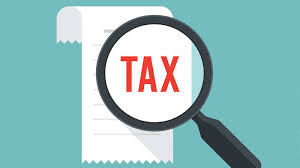The Kenya Revenue Authority has released its plan to curb the shortfall in revenue collected. The taxman has developed several revenue enhancement initiatives to improve tax revenues for the coming tax year.
This is after the authority failed to meet its Ksh1.64 trillion target in the last tax year. Some of the enhancements include:
Customer reforms and modernization
KRA recently implemented the Integrated Customs Management Systems (iCMS) which will replace the SIMBA within the current financial year.
The new customs management system anticipated to raise productivity by 2% through sealing loopholes in the previous system.
Additionally, the taxman can now supervise, interrogate and take decisions about scanning operations. KRA will use the Integrated Cargo Scanning Solutions (ICSS) and add nine additional scanners to curb possible fraud and smuggling of goods at border points.
The authority will also improve on cargo transit times and reduce cargo diversion through its Regional Electronic Tracking Systems (RECTS). KRA will expand RECTS to include cargo under customs control, and excise goods in factories to boost the capacity of the rapid response unit.
The system will allow a shipper to monitor cargo until it arrives at the designated destination. This will reduce the chances of exports re-entering the local market.
The authority will also improve on cargo transit times and reduce cargo diversion through its Regional Electronic Tracking Systems (RECTS). Rects will include cargo under customs control, excise goods factories to boost the capacity of the rapid response unit.
Tax base expansion
KRA plans to increase its tax base through existing platforms like iTax, which has seen a growth in the number of registered taxpayers from 6.7 million in June 2018 to 8 million in June 2019.
Furthermore, the authority is improving its understanding and response to customer needs through its Customer Relationship Management Software, as well as social media engagements.
Compliance
KRA plans to improve taxpayer compliance using data-driven solutions on iTax which will allow the authority to detect non-compliance.
Moreover, the body which has recognised non-compliance as a criminal offence is establishing new ways to punish non-compliance and evasion.
According to KRA Commissioner of Investigations and Prosecutions Edward Karanja, the authority is working with other judiciary stakeholders to establish special tax courts that will address tax evasion.
“The authority has also established a reward system for whistleblowers. Individuals who report tax evasions will be rewarded either 5% of the tax proceeds from the evaded tax or Kshs. 2 million, whichever is less,” said Mr Karanja.




